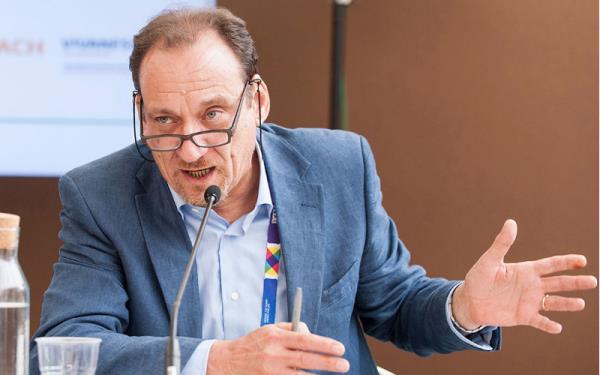Roberto Pinton shares about It's Bio project and expansive role of organic practices
VU
The renowned organic expert Roberto Pinton, a two-time member of the IFOAM executive, sheds light on the expansive role of organic practices beyond just food production. Key concerns highlighted during the recent Cop28 summit include the crucial role of organic agriculture in sustainable production, boosting consumption, investing in a greener world, and promoting climate-friendly farming.
Pinton emphasizes that organic farming provides public goods by safeguarding not only crops but also the environment, water resources, animal welfare, and rural development, creating clean jobs.
Highlighting the urgent need for change, Pinton points out the declining soil fertility in half of Italy's soils, coupled with challenges faced by agricultural companies due to climate issues and rising costs. He calls for a radical shift in our food production methods to address these pressing challenges.
Recognizing the value of organic production, Pinton notes a recent dip in purchases over the last two years but highlights a positive trend with a 28% increase in fruit and vegetable purchases in Italy since 2018.
Pinton acknowledges global events like COVID-19, conflicts, economic upheavals, and rising energy costs impacting the organic market. Despite hurdles, he remains optimistic, stressing the importance of understanding the widespread benefits of organic farming.
In 2022, the organic market in Italy remained stable, with a slight increase in specialized shops and supermarkets, a notable surge in discount stores, and a contraction in small grocery stores. While growth has slowed, there's a 10% increase in organic farmers and a 3.6% rise in processing companies, making Italy a leader in Europe.
Introducing "It's Bio," a project financed by the European Union and Aop Gruppo Vi.Va, targeting consumers in Italy, Belgium, and Greece. This initiative aims to champion European quality production certified by organic standards, contributing to a sustainable future.
Pinton concludes by stressing the need for collective action, advocating for interventions like food and environmental education and impactful communication campaigns. He emphasizes shared responsibility, noting that the benefits of organic farming extend beyond producers to the broader community, aligning with the principles of the European Green Deal.
For more information on the "It's Bio" project, send an inquiry





